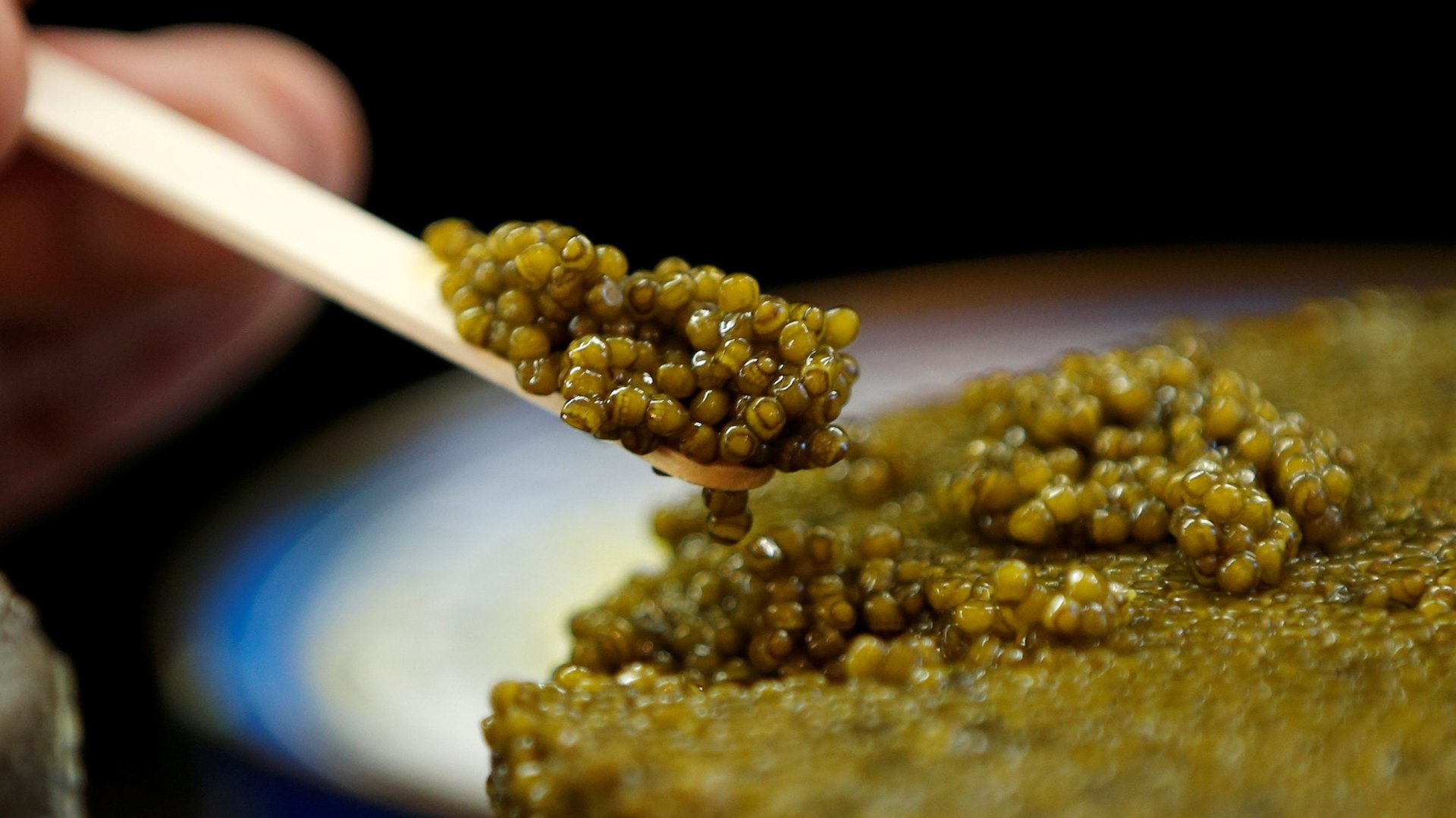Russia isn’t even close to being the world’s largest caviar exporter
In a new raft of sanctions on Russia, announced on Apr. 8, the European Union seemingly ruined James Bond’s staple diet. In addition to banning the import of Russian spirits, the EU sanctioned high-end Russian seafood as well. No more vodka martinis and caviar, Bond might think morosely.


In a new raft of sanctions on Russia, announced on Apr. 8, the European Union seemingly ruined James Bond’s staple diet. In addition to banning the import of Russian spirits, the EU sanctioned high-end Russian seafood as well. No more vodka martinis and caviar, Bond might think morosely.
If he did, though, he’d be a poor student of EU trade statistics. A large share of Europe’s most desirable caviar may once have come from beluga sturgeon fished out of the Caspian Sea by Russia, but no longer. China’s fish farms, in 2018, accounted for 84% of the world’s sturgeon production, according to the European Market Observatory for Aquaculture and Fisheries Products. In 2020, China exported 123 tons of caviar, and more than a third of that was bound for the EU. That same year, Russia exported just one ton of caviar.
China makes more caviar than any other country
A couple of decades ago, China set out to dominate the caviar trade. In 2001, China began importing vast quantities of live sturgeon eggs, according to data maintained by two bodies, the Food and Agriculture Organization and the Convention on International Trade in Endangered Species of Wild Fauna and Flora. By 2013, these imports had started to decline—indicating that Chinese companies now had enough sturgeon of their own to repopulate their fish farms.
The world’s largest producer of caviar, the Chinese firm Kaluga Queen, was founded in 2003, and it produces around 60 tons of caviar per year—more than Russia exported in total between 2014 and 2020. Its sturgeon are farmed in an artificial, coldwater lake fed by mountain streams, each fish tagged by an identifiable number. Kaluga Queen supplies caviar to 22 Michelin restaurants in France, to the Academy Awards banquet, and to the first-class cabins of Lufthansa and American Airlines.
Meanwhile, in the face of Chinese competition, Russian caviar production has dropped drastically. Big dams and power plants along the Volga river have driven wild sturgeon into near-extinction. Having outlawed commercial sturgeon fishing, the Russian government runs its own fish farms, but they don’t produce enough even for domestic devotees of high-living, let alone for export.
The EU’s ban on imports of Russian caviar is thus high only on the symbolism of cutting off a prestigious product once indelibly associated with the country. That aside, though, the sanctions have the rough commercial heft of banning Russian cars or Russian golf clubs—which is to say, not much at all.